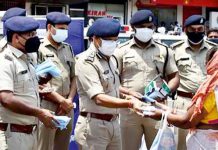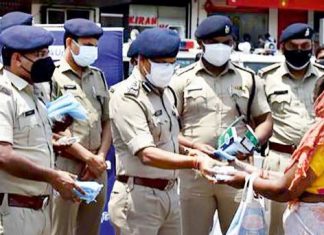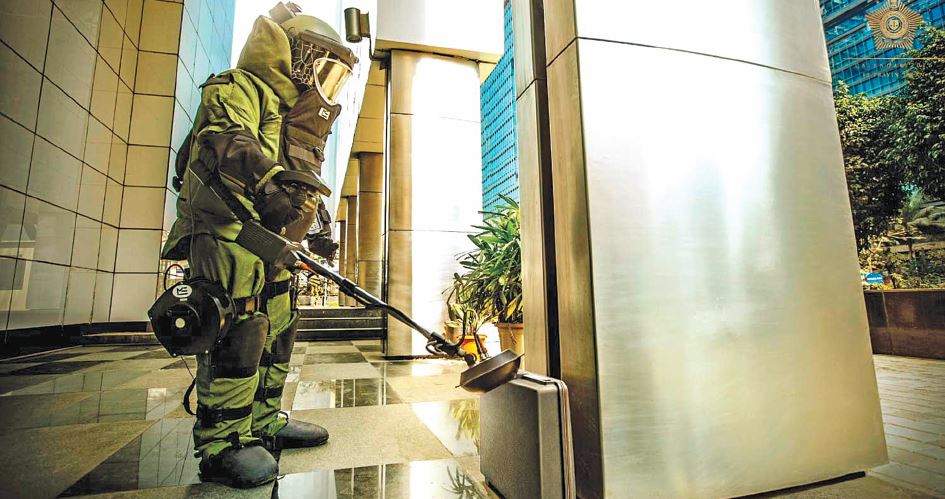 In view of the increasing crime rate in the city, citizen safety has become immensely crucial. Mumbai Police is always on alert and on its toes to maintain law and order. A great majority of crimes can be avoided if citizens follow some safety guidelines.
In view of the increasing crime rate in the city, citizen safety has become immensely crucial. Mumbai Police is always on alert and on its toes to maintain law and order. A great majority of crimes can be avoided if citizens follow some safety guidelines.
Precautions:
Residential Area
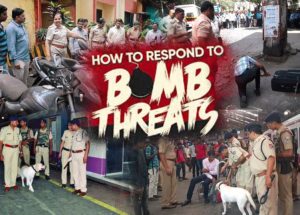 • Hire qualified and experienced watchmen only.
• Hire qualified and experienced watchmen only.
• Check the antecedents/credentials of watchmen and domestic servants before hiring them. Insist on references from their previous employers. Furnish their full particulars to your police station in the format suggested by them.
• Always employ separate watchmen for day and night duties.
• Secretaries of societies are advised to brief all the security men/watchmen/liftmen about various aspects of security.
Security Checks
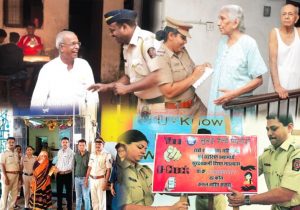 • Security personnel should make an enquiry if a taxi or an auto-rickshaw is seen parked inside the compound or outside the building for a long time.
• Security personnel should make an enquiry if a taxi or an auto-rickshaw is seen parked inside the compound or outside the building for a long time.
• They should inform the police in case they find any vehicle parked inside the building (if ownership is not known), for a long time.
Societies’ Secretaries:
They are advised to brief all the residents that:
• Whenever a new servant is employed, his/her photograph, fingerprints and other details should be obtained and submitted to the local police station.
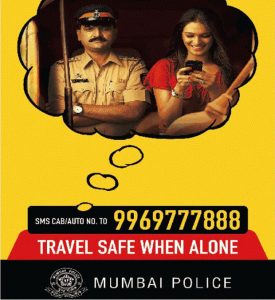 • Residents should be advised to install a door with iron bars inside the flat, superior quality night latches and special eye lens on the main door. Ideally, interaction with strangers and vendors should be through the grilled door. High wattage lightsource with pilfer proof cover outside the main door should be installed.
• Residents should be advised to install a door with iron bars inside the flat, superior quality night latches and special eye lens on the main door. Ideally, interaction with strangers and vendors should be through the grilled door. High wattage lightsource with pilfer proof cover outside the main door should be installed.
• Residents should not keep huge amounts of cash, valuable ornaments etc., in the house. They should avoid discussing money transactions and other important family matters in the presence of servants/outsiders.
• Residents should not humiliate servants on petty matters, nor should they penalize them for small damages. It is important to inform the police about any suspicious happening or unclaimed objects found in suspicious circumstances. Extend full cooperation to the police.
• A special register should be maintained in every society and kept in the custody of the watchman or in the society’s office. Whenever police officers visit the area, they should get an entry in such registers.
In case policemen are chasing a criminal:
• Give way to the police immediately.
• If possible, note down the number of the escaping vehicle and the identity of the occupants.
- Remember the entry and exit routes of the criminals.
Vehicle Theft
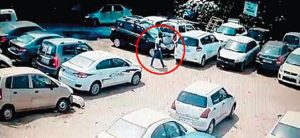 Every year, nearly 36,000 vehicles,amounting to Rs.115 crores, are stolen in India; out of which, only 14,500 are traced, often inun-roadworthy conditions, with many components missing. These vehicles are stolen because cars are inadequately secured and unattended. Installation of anti theft devices can help frustrate any attempted theft.
Every year, nearly 36,000 vehicles,amounting to Rs.115 crores, are stolen in India; out of which, only 14,500 are traced, often inun-roadworthy conditions, with many components missing. These vehicles are stolen because cars are inadequately secured and unattended. Installation of anti theft devices can help frustrate any attempted theft.
Secure parking facility like garage, petrol pump, etc. during night also ensures safety against theft. If parking facilities are not available, parking in a well-lit area is the next best alternative.
Dos
• Use securing devices like steering lock, clutch lock, brake lock, etc.
• Double check all doors, including the boot.
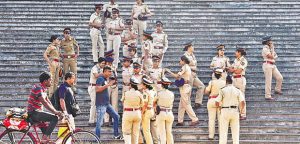 • If possible, install a loud alarm system in your car so that thieves are discouraged even if they manage to break into your car.
• If possible, install a loud alarm system in your car so that thieves are discouraged even if they manage to break into your car.
• Try and use a detachable music system enabling you to take it along whenever you park the car for a long time. This will thwart any temptation by thieves to break into the car.
• Paint your car number on the front and rear end of the car body, apart from the numberplates. Ideally, have it etched on the windscreens and window glasses too. This prevents them from being misused by criminals using fake number plates.
Don’ts
• Never leave the vehicle door unlocked or car windows partially open. Make sure that the quarter glasses are properly secured.
• Do not leave valuables inside the car, even if it is locked, as this will attract thieves.
• Do not overdo extra fittings, as these tempt prospective thieves.
• Never leave the key dangling in the ignition.
If Your Car is Stolen
• Report the theft to the nearest police station and inform your insurance company.
Fraud Money Schemes Cliche Offers
• They offer to double your money in two months or less, offering post-dated cheques as a guarantee for the same.
• They claim to do it by investing in some wonder projects or plantations.
• Some schemes ask for huge sums of money for being a part of a chain wherein you are offered gifts and form a chain with two people, who in turn, find two more people who will form part of the chain They in turn will get two more subscribers, and so on. The subscribers are made to believe that it is absolutely safe as it run by a registered company.
Reality
• All schemes offering high returns of doubling money within two months or at such a short span of time have no legal sanction, nor are they reliable, Post-dated cheques are not a guaranteed payment device, as they could bounce when you finally deposit them.
• There are no projects, especially agriculture-based, that can give returns in less than a year. In fact, tree plantations take at least ten years to mature.
• Gift schemes and chains are an offence under the Prize Chits and Money Circulation Schemes(Banning) Act of 1978.
• Even registered companies are not allowed to promote and run such schemes.
Children and Women Safety
Call 103 to raise your voice against violence
Say “NO”
• No one has the right to tease or sexually harass you. No one has the right to make you feel uncomfortable, whether within or outside your home; whether in school, college or at a social gathering.
• No one has the right to beat or torture you physically or mentally, or use force on you in any way.
Remember
• Violence against you is not your fault. Violence is not anyone’s right. Do not hesitate, do not be afraid to call for help.
• Call 103, the 24-hour helpline for crime against women in Mumbai, and the police will be there immediately to take action. It is up to you to make that call.
Bomb Threats and Physical Security Measures
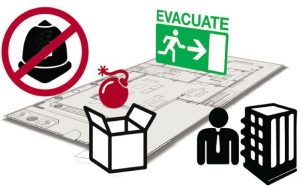 • Explosions and bomb threats are a harsh reality of the world we live in. As these threats increase, it becomes imperative that we actively participate in dealing with them. Collective responsibility has strength. Awareness and preparation are the keywords in dealing with such threats, whether potential or real. If people at large understand and execute certain laid down guidelines, they can greatly reduce the potential of personal injury, property loss and trauma that accompanies bomb threats. Most importantly, they can help reduce panic, the most contagious of all human reaction, and the ultimate achievement of the culprit behind the bomb threat. The Bomb Threat Plan advises on how to respond to such a situation until the police arrives.
• Explosions and bomb threats are a harsh reality of the world we live in. As these threats increase, it becomes imperative that we actively participate in dealing with them. Collective responsibility has strength. Awareness and preparation are the keywords in dealing with such threats, whether potential or real. If people at large understand and execute certain laid down guidelines, they can greatly reduce the potential of personal injury, property loss and trauma that accompanies bomb threats. Most importantly, they can help reduce panic, the most contagious of all human reaction, and the ultimate achievement of the culprit behind the bomb threat. The Bomb Threat Plan advises on how to respond to such a situation until the police arrives.
What is a Bomb?
• Bombs are explosive devices that can be constructed to look like almost anything, and can be placed or delivered in any number of ways. The only common denominator that exists among bombs is that they are all designed to explode.
• Most bombs,or as we call them IEDs (Improvised Explosive Devises), are hand-made and are limited in their design only by imagination and resources available to the bomber. Remember, while looking for a bomb, suspect anything that looks unusual and out of place. The thumb rule is, ANYTHING; unless it belongs to you or you know (not presume) about, being a bomb. Simple? Leave it to trained bomb technicians to determine whether it is a bomb or not.
Prevention Plan
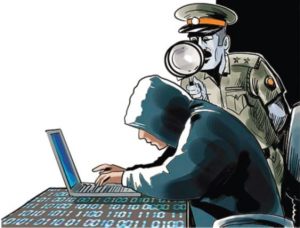 • Most establishments already have some planned or unplanned security in place. Locks on windows and doors, outside lights, etc., are all designed and installed to contribute towards the security and the protection of its occupants.
• Most establishments already have some planned or unplanned security in place. Locks on windows and doors, outside lights, etc., are all designed and installed to contribute towards the security and the protection of its occupants.
• While considering measures to increase security for your building or establishment, it is highly recommended that you perform a Security Audit first. Do not be intimidated by the word. It merely involves thinking of the vulnerabilities your establishment offers to someone to come close enough to harm the occupants, or to plant some explosive device there. You may consider establishing a task force involving staff and security personnel working in your establishment for this purpose. There are various private organizations which may help you in this. In case of any difficulty or help needed, please contact the nearest police station.
• The Bomb Threat Plan: It is easy to lose your nerve when you answer a person’s phone informing that his/her place will be blown off any minute. It is very important to be prepared with an organized plan to deal with such a situation. This will help in tiding over any threat-like situation without unnecessary panic, confusion, and chaos.
There is no single security plan that is adaptable to all situations. The following recommendations are general and may contribute to reducing vulnerability to bomb attacks:
 • The exterior configuration of a building or facility is very important. Unfortunately, in most instances, the architect gives little or no consideration to security, particularly to thwart or discourage a bomb attack. However, by adding fencing and lighting, and by controlling access, the vulnerability of a facility to a bomb attack can be reduced significantly.
• The exterior configuration of a building or facility is very important. Unfortunately, in most instances, the architect gives little or no consideration to security, particularly to thwart or discourage a bomb attack. However, by adding fencing and lighting, and by controlling access, the vulnerability of a facility to a bomb attack can be reduced significantly.
• Bombs being delivered by car or left in a car are a grave reality. Visitors’ parking should be restricted, if possible, to 300 feet away from your building or any building in a complex. If restricted parking is not feasible, properly identified employee vehicles should be parked closest to your facility and visitors’ vehicles should be parked at a distance.
• Heavy shrubs and vines should be well-trimmed to reduce their potential to conceal criminals or bombs. Window boxes and planters are perfect receptacles for the bomber. Unless there is an absolute requirement for such ornamentation, window boxes and planters are better removed. If they must remain, security personnel should be briefed to check them regularly.
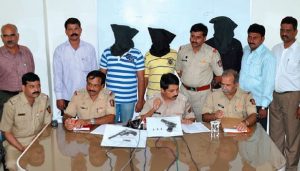 • A highly visible security man can be a significant deterrent. Even if this patrol is by only one security guard/night guard, he can be optimally utilized outside the building. Consider installation of CCTV cameras that cover exterior building perimeters. An adequate burglar alarm system and signboards indicating that such a system is in place would be a great help.
• A highly visible security man can be a significant deterrent. Even if this patrol is by only one security guard/night guard, he can be optimally utilized outside the building. Consider installation of CCTV cameras that cover exterior building perimeters. An adequate burglar alarm system and signboards indicating that such a system is in place would be a great help.
• Entrance/exit doors may be given a second glance. Solid wood or sheet metal-faced doors provide extra integrity that a hollow-core wooden door cannot provide. Bars, grates, heavy mesh screens, or steel shutters over windows offer good protection from otherwise unwanted entry. Floor vents, transoms, and skylights should also be covered.
• Controls should be established for positively identifying personnel who are authorized access to critical areas. These controls should extend to the inspection of all packages and materials being taken into critical areas.
• Security and maintenance personnel should be alert of people who act in a suspicious manner, as well as objects, items, or parcels which lookout of place or spicious looking. Surveillance should be established to include potential hiding places (e.g., stairwells, restrooms, and any vacant office space) for unwanted individuals.
 • Doors or access ways to areas such as boiler rooms, mailrooms, computer areas, switchboards, and elevator control rooms should remain locked when not in use. It is important to establish a procedure for the accountability of keys.
• Doors or access ways to areas such as boiler rooms, mailrooms, computer areas, switchboards, and elevator control rooms should remain locked when not in use. It is important to establish a procedure for the accountability of keys.
• Entrances and exits can be modified with minimal expenditure to channel all visitors through a reception desk. Individuals entering the building should be asked to sign a register indicating the name and room number of the person whom they wish to visit. A system for signing out when the individual depart could be integrated into this procedure.
• Maintenance of good public relations is important for every organization, but ensuring security for your organization and your patrons is vital and YOU are responsible for it.
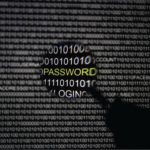 • The threat of explosives necessitates that in the interest of safety and security, visitors may be subjected to some inconvenience while gaining entry into public buildings. Fortunately, the public is becoming more accustomed to routine security checks.
• The threat of explosives necessitates that in the interest of safety and security, visitors may be subjected to some inconvenience while gaining entry into public buildings. Fortunately, the public is becoming more accustomed to routine security checks.

